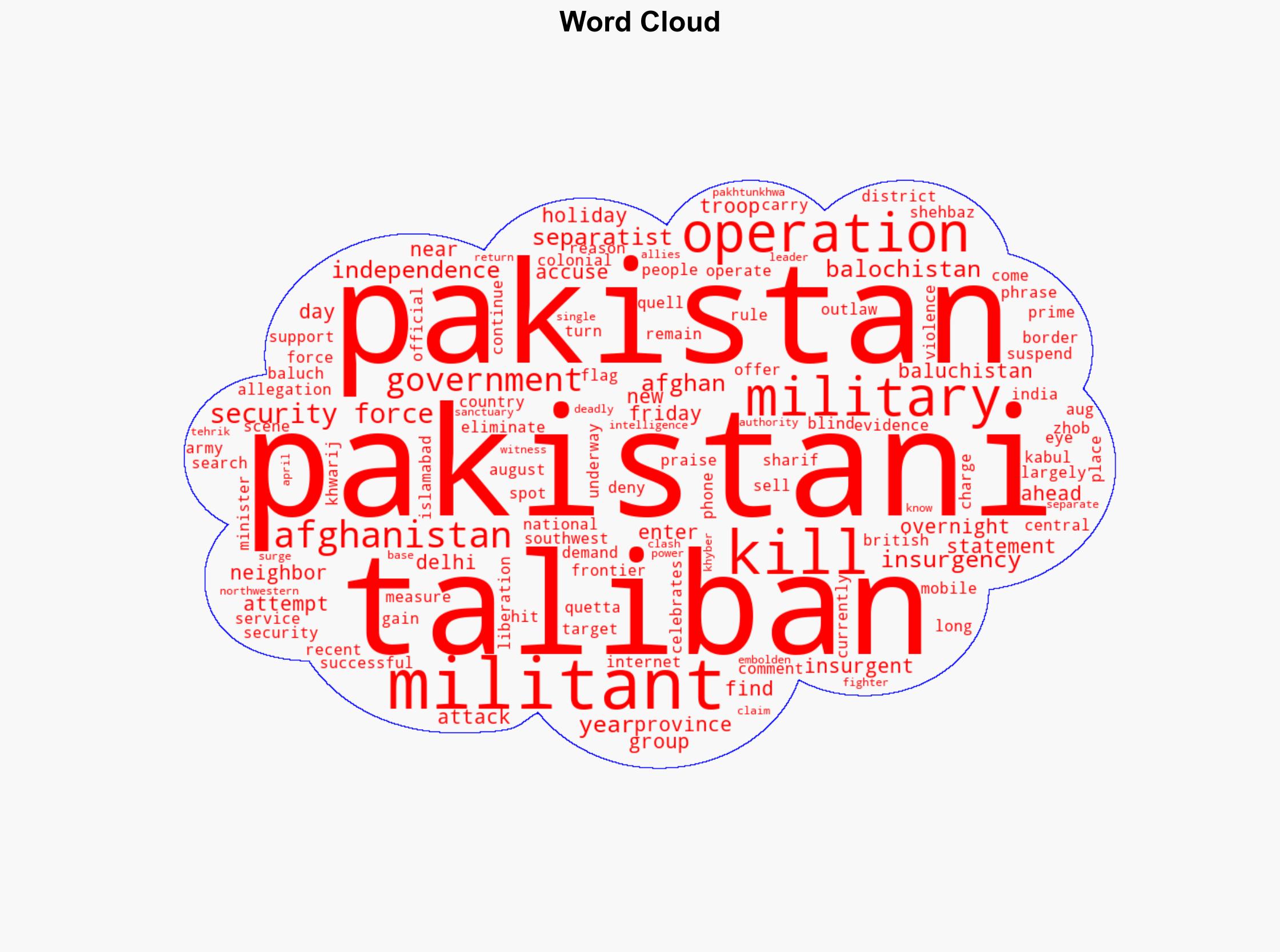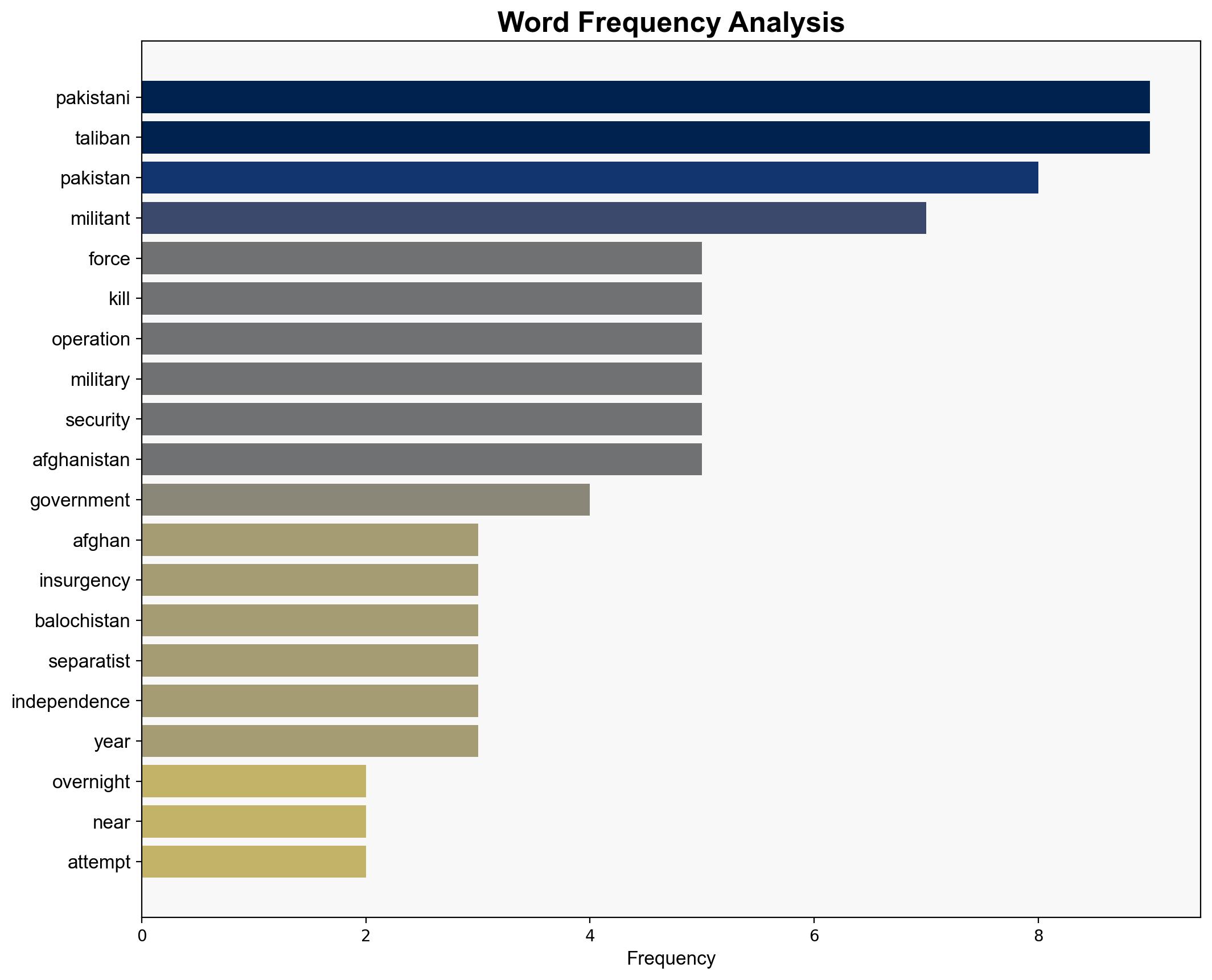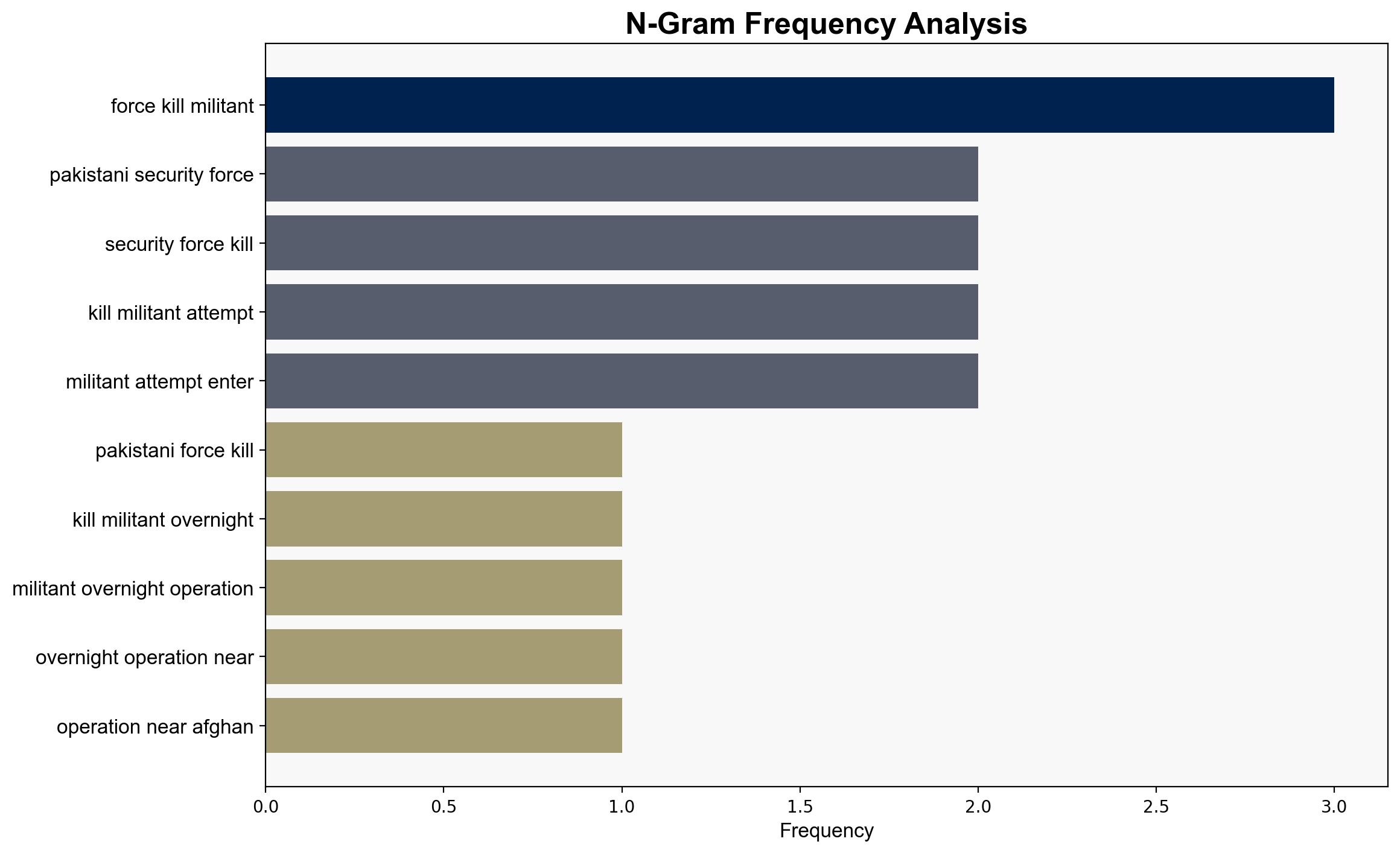Pakistani forces kill 33 militants in overnight operation near Afghan border – Japan Today
Published on: 2025-08-08
Intelligence Report: Pakistani forces kill 33 militants in overnight operation near Afghan border – Japan Today
1. BLUF (Bottom Line Up Front)
The most supported hypothesis is that the Pakistani military’s operation was a preemptive measure against an imminent threat from militants allegedly supported by external actors. Confidence level: Moderate. It is recommended that Pakistan enhances intelligence-sharing with Afghanistan and international partners to address cross-border militancy effectively.
2. Competing Hypotheses
1. **Hypothesis A**: The operation was a response to credible intelligence of an impending militant incursion from Afghanistan, possibly supported by external actors like India.
– **Supporting Evidence**: The military’s statement about the militants attempting to enter from Afghanistan and longstanding accusations against India.
– **SAT Applied**: Analysis of Competing Hypotheses (ACH 2.0) suggests this hypothesis aligns with historical patterns of cross-border militancy and geopolitical tensions.
2. **Hypothesis B**: The operation was primarily a domestic political maneuver to consolidate power and demonstrate control over insurgency-hit regions.
– **Supporting Evidence**: The timing before Pakistan’s Independence Day and the suspension of mobile services suggest a focus on internal security and public perception.
– **SAT Applied**: Bayesian Scenario Modeling indicates this hypothesis is plausible given the historical use of military operations for domestic political gains.
3. Key Assumptions and Red Flags
– **Assumptions**: Hypothesis A assumes reliable intelligence on militant movements and external support. Hypothesis B assumes the operation’s timing was politically motivated.
– **Red Flags**: Lack of independent verification of the militants’ origins and the extent of external support. Potential bias in attributing blame to India without concrete evidence.
– **Blind Spots**: The possibility of internal dissent within the Pakistani military or government influencing the operation’s narrative.
4. Implications and Strategic Risks
– **Geopolitical**: Escalation of tensions with Afghanistan and India could destabilize regional security.
– **Economic**: Prolonged instability in Baluchistan may deter investment and impact economic growth.
– **Psychological**: Increased militant attacks could erode public confidence in the government’s ability to maintain security.
5. Recommendations and Outlook
- Enhance cross-border intelligence collaboration with Afghanistan to prevent militant sanctuary.
- Engage in diplomatic dialogue with India to address mutual security concerns and reduce tensions.
- Scenario Projections:
- **Best Case**: Successful intelligence collaboration reduces cross-border militancy.
- **Worst Case**: Escalation leads to increased regional conflict and economic downturn.
- **Most Likely**: Continued sporadic militant activity with periodic military responses.
6. Key Individuals and Entities
– Shehbaz Sharif (Prime Minister of Pakistan)
– Pakistani Taliban (Tehrik-i-Taliban Pakistan)
– Baluch Liberation Army
7. Thematic Tags
national security threats, cybersecurity, counter-terrorism, regional focus




